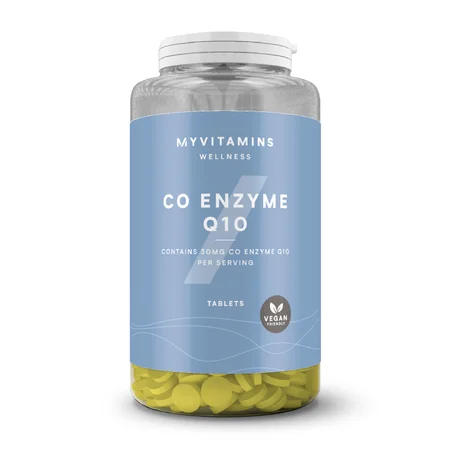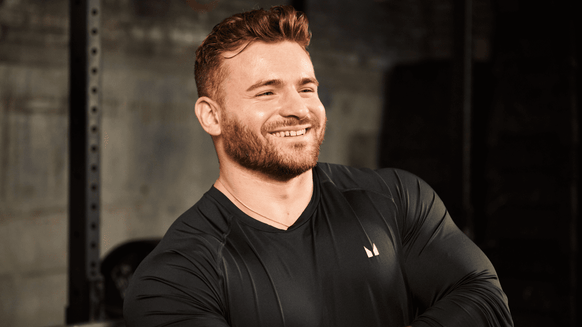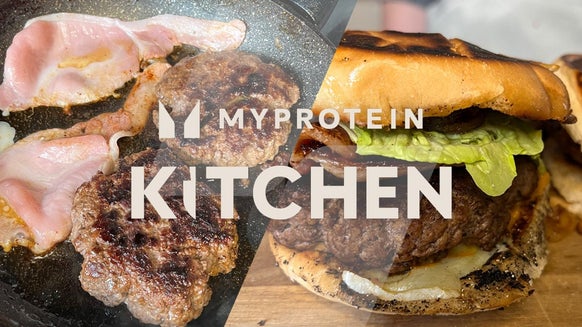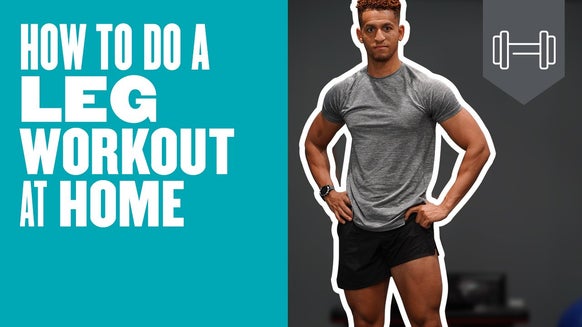10 Best Vitamins & Supplements For Energy
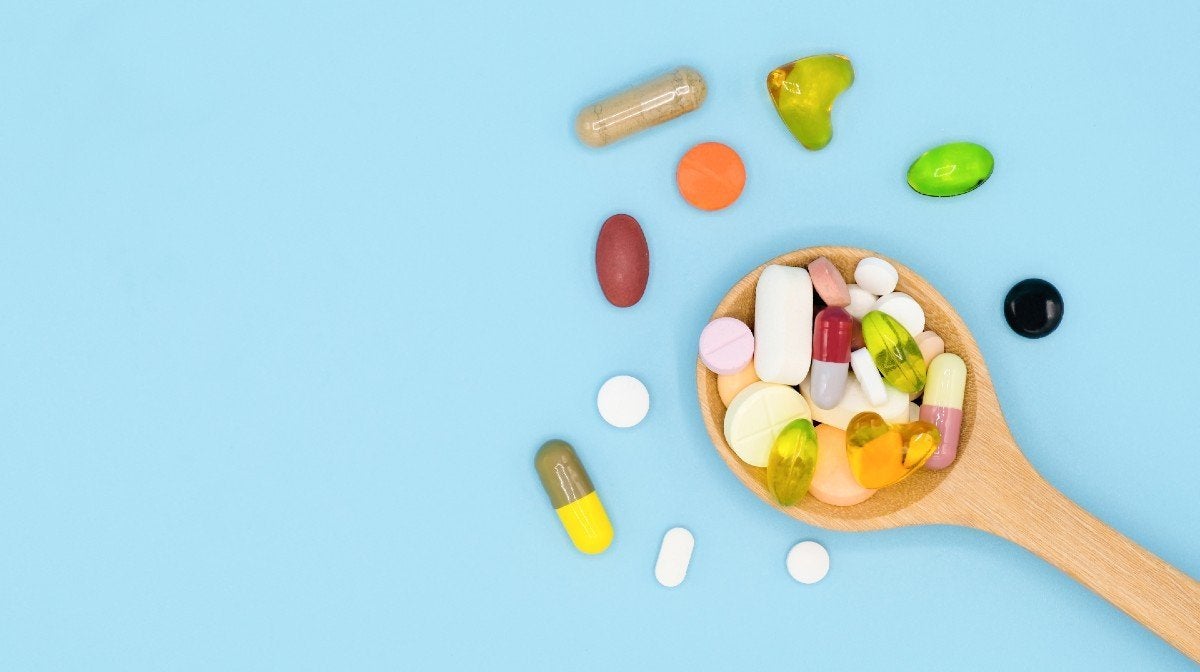
A well-balanced diet combined with exercise and sleep are the key factors when looking to maintain energy levels and fight fatigue.
But there may be times when you benefit from an extra boost that certain vitamins and supplements can provide. Here’s our guide to the best supplements for providing some extra energy.

Supplement and Vitamins List
1. Dextrose
Dextrose is a high GI carbohydrate and is a convenient, fast acting energy source. This makes it a great supplement for providing energy both before and during a workout.
It can also be really beneficial post exercise as it will help restore glycogen levels faster.1 Improving recovery and increasing glycogen availability (the energy used for high intensity training) for your next session.
This can be particularly helpful if there is a short turnaround before your next workout, like if you’re tackling 2 workouts in a day.
2. MCTs
MCTs are medium chain triglycerides which are the healthy fats found in foods such as coconut and dairy products.
They have a faster metabolism rate than long chain fatty acids which results in faster energy production.2 This can make it a perfect pre-exercise supplement or in powder form they can be added to a protein shake or smoothie for an extra energy boost.
3. Creatine
During high intensity exercise such as 50m sprint or a heavy set of squats, creatine plays a key role in energy availability. Supplementing creatine increases the amount of phosphocreatine (PCr) storage in your muscle cells.3 During high intensity exercise, PCr helps maintain levels of adenosine trisphosphate (ATP) allowing you to preform extra reps, sprint for longer and recover quicker,3 and who doesn’t want that?
4. Caffeine
Caffeine is a powerful stimulant which can improve alertness and concentration and reduce feelings of fatigue.5 After consuming caffeine you will typically see the effects between 20 and 120 minutes and if taking to boost your training performance it’s recommended you consume caffeine 45-60 minutes prior to your session.
However, using caffeine too much can affect sleep quality. Reducing caffeine consumption in the late afternoon helps to prevent any tossing and turning when it’s time for sleep.
5. Iron
Iron is crucial for your body’s energy production as its required to produce enough haemoglobin – a substance that carries oxygen in your red blood cells.5
This oxygen helps to metabolise energy from stored fat and carbohydrate. This is why if you are deficient in iron, you might experience fatigue and tiredness. Women aged between 19 and 50 require 14.8mg a day and males need 8.7mg.
6. Folic Acid
Found in leafy green vegetables, broccoli, sprouts, peas, chickpeas, kidney beans, liver and some breakfast cereals
Red blood cells carry oxygen around the body which is used to produce energy from your body’s stored fat and carbohydrate. So folic acid is definitely an energy essential.
7. Vitamin C
Vitamin C is important for energy production as it also allows the transport and absorption of iron.6 It’s also essential for the synthesis of carnitine which is a key compound in energy metabolism.
Carnitine acts as a transporter enabling fatty acids to enter the mitochondria and eventually produce energy.7
8. Magnesium
Magnesium is a key mineral involved in the metabolism of foods - which is where we get our energy from.
This supplement may also help to improve sleep,8 which is incredibly important as good quality sleep on a regular basis can help improve recovery from exercise and of course, fight fatigue. It's is found in leafy greens like spinach, nuts, seeds, legumes and whole grains and it is recommended women consume 270mg a day and males 300mg a day.
9. CoQ10
CoQ10 is needed for your body’s energy production as it’s involved in the process of making ATP (adenosine triphosphate), which is used to carry out all your body’s functions. It's also been shown to improve performance and recovery following tough exercise which causes considerable fatigue.9
Levels of CoQ10 naturally decrease with ageing which may make supplementation may especially beneficial as you’re getting older.
10. B12
B12 is important for your body’s energy production due to its role in the metabolism of fatty acids and amino acids. Essentially, B12 allows our bodies to break down food into energy and there is evidence to suggest that if you are deficient in B12, supplementation may increase energy levels.10
The body can’t produce its own B12 so it needs to be consumed within your diet. B12 is found in animal protein sources such as meat and poultry. This means B12 may be a particularly beneficial supplement for vegetarians and vegans.
Take Home Message
Alongside a healthy diet and good quality sleep the above supplements may help provide an extra boost. Some can be fast acting like dextrose, MCT and caffeine whereas others need to be supplemented on a more regular
| calories | 0 |
| totalFat | 0 |
| totalCarbohydrates | 0 |
| protein | 0 |

Liam is a certified sport nutritionist with the International Society of Sport Nutrition and is enrolled on the British Dietetics Association’s Sport and Exercise Nutrition register. He has a Bachelor’s of Science in Sport and Exercise Science and is graduate of the ISSN Diploma in Applied Sport and Exercise Nutrition.
Liam is an experienced personal trainer, helping clients reach their health and fitness goals with practical, evidence informed exercise and nutrition advice.
In his spare time Liam has competed in numerous powerlifting competitions and enjoys hill walking, football and expanding his recipe repertoire in the kitchen. Find out more about Liam's experience here.
- Burke LM, Collier GR, Hargreaves M. Muscle glycogen storage after prolonged exercise: effect of the glycemic index of carbohydrate feedings. J Appl Physiol (1985). 1993 Aug;75(2):1019-23. doi: 10.1152/jappl.1993.75.2.1019. PMID: 8226443.
- Jeukendrup AE, Thielen JJ, Wagenmakers AJ, Brouns F, Saris WH. Effect of medium-chain triacylglycerol and carbohydrate ingestion during exercise on substrate utilization and subsequent cycling performance. Am J Clin Nutr. 1998 Mar;67(3):397-404. doi: 10.1093/ajcn/67.3.397
- Buford, T.W., Kreider, R.B., Stout, J.R. et al. International Society of Sports Nutrition position stand: creatine supplementation and exercise. J Int Soc Sports Nutr 4, 6 (2007). https://doi.org/10.1186/1550-2783-4-6
- Guest, N.S., VanDusseldorp, T.A., Nelson, M.T. et al. International society of sports nutrition position stand: caffeine and exercise performance. J Int Soc Sports Nutr 18, 1 (2021). https://doi.org/10.1186/s12970-020-00383-4
- Haskell-Ramsay C. et al. (2018) The acute effects of caffeinated black coffee on cognition and mood in healthy young and older adults. Nutrients, 10(10):1386.
- Vaucher P, Druais PL, Waldvogel S, Favrat B. Effect of iron supplementation on fatigue in nonanemic menstruating women with low ferritin: a randomized controlled trial. CMAJ. 2012;184(11):1247-1254. doi:10.1503/cmaj.110950
- Longo N, Frigeni M, Pasquali M. Carnitine transport and fatty acid oxidation. Biochim Biophys Acta. 2016;1863(10):2422-2435. doi:10.1016/j.bbamcr.2016.01.023
- Abbasi B, Kimiagar M, Sadeghniiat K, Shirazi MM, Hedayati M, Rashidkhani B. The effect of magnesium supplementation on primary insomnia in elderly: A double-blind placebo-controlled clinical trial. J Res Med Sci. 2012;17(12):1161-1169.
- Mizuno K, Tanaka M, Nozaki S, Mizuma H, Ataka S, Tahara T, Sugino T, Shirai T, Kajimoto Y, Kuratsune H, Kajimoto O, Watanabe Y. Antifatigue effects of coenzyme Q10 during physical fatigue. Nutrition. 2008 Apr;24(4):293-9. doi: 10.1016/j.nut.2007.12.007. Epub 2008 Feb 13. Erratum in: Nutrition. 2008 Jun;24(6):616. PMID: 18272335.
- Office of Dietary Supplements. (2011, June 24). National Institutes of Health Office of Dietary Supplements – Vitamin B12.
